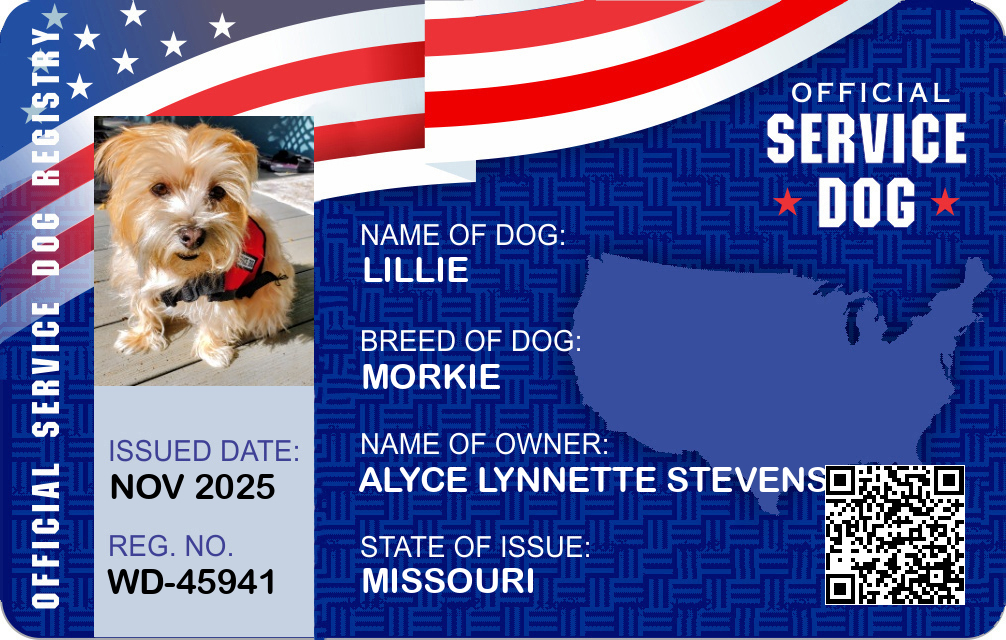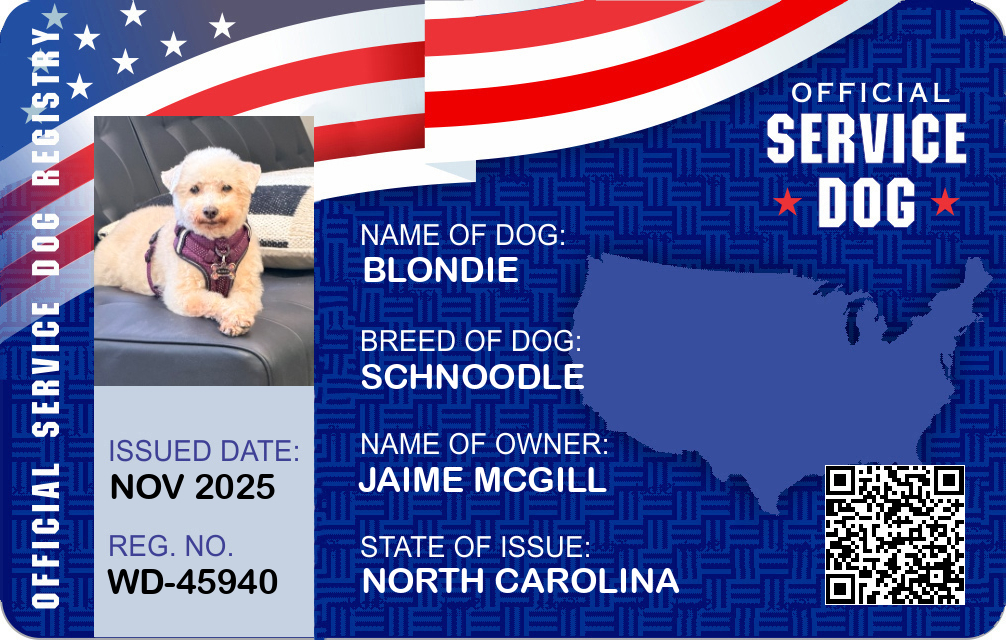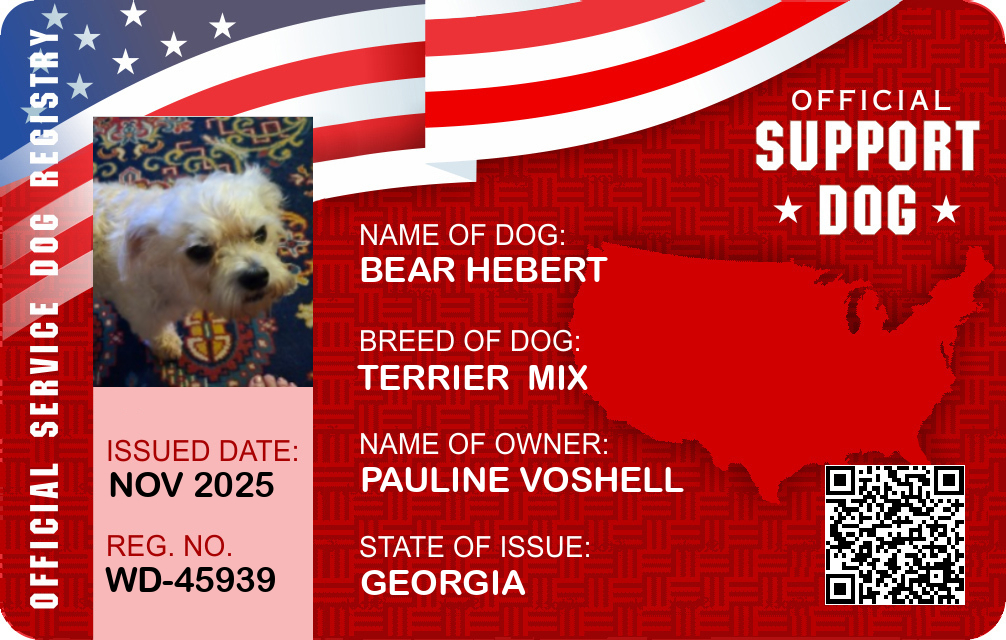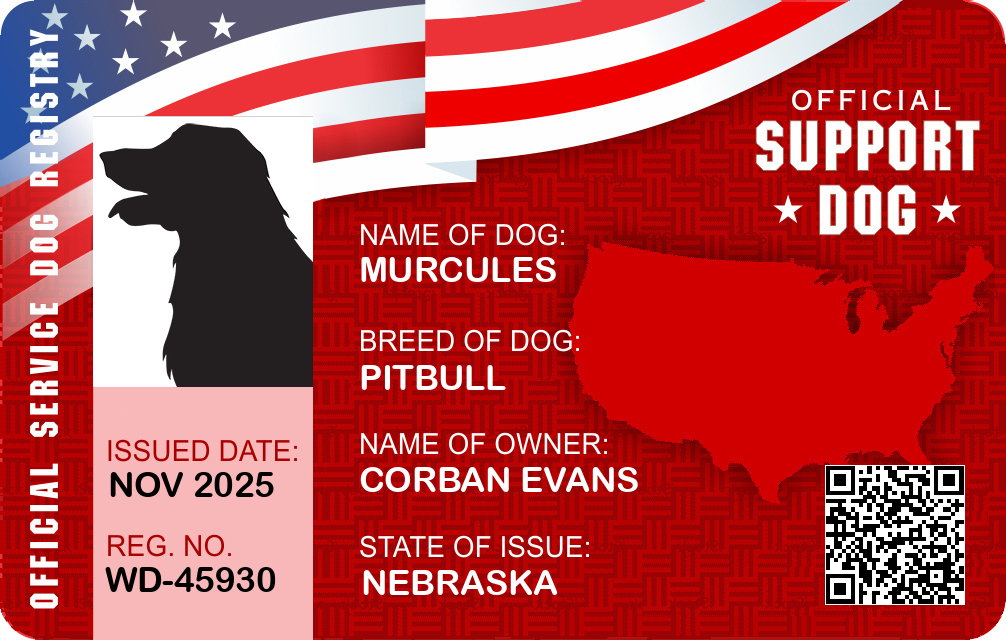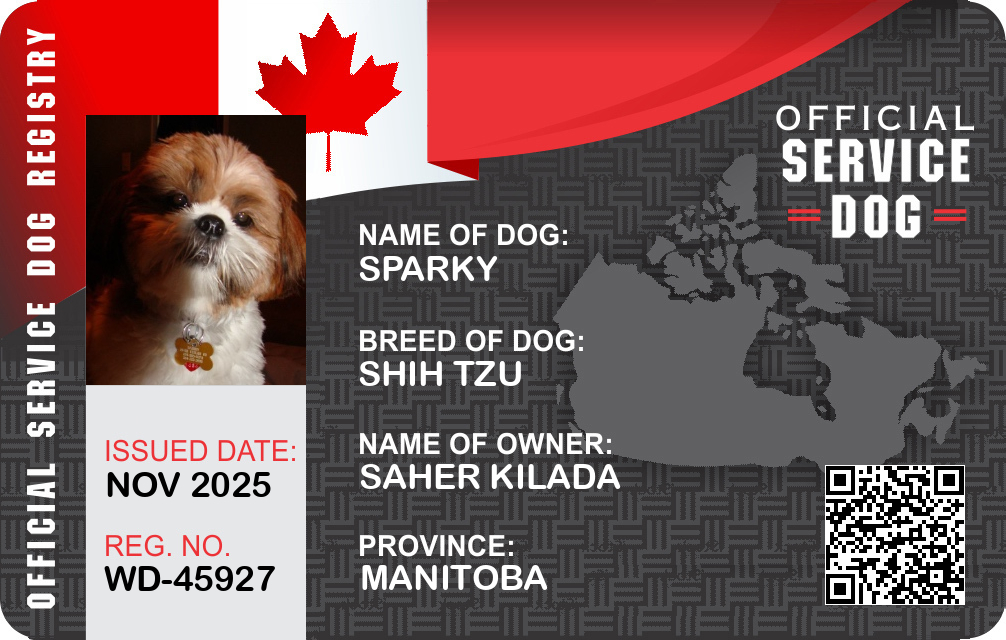Oklahoma Service Dog Laws
Register Your Dog
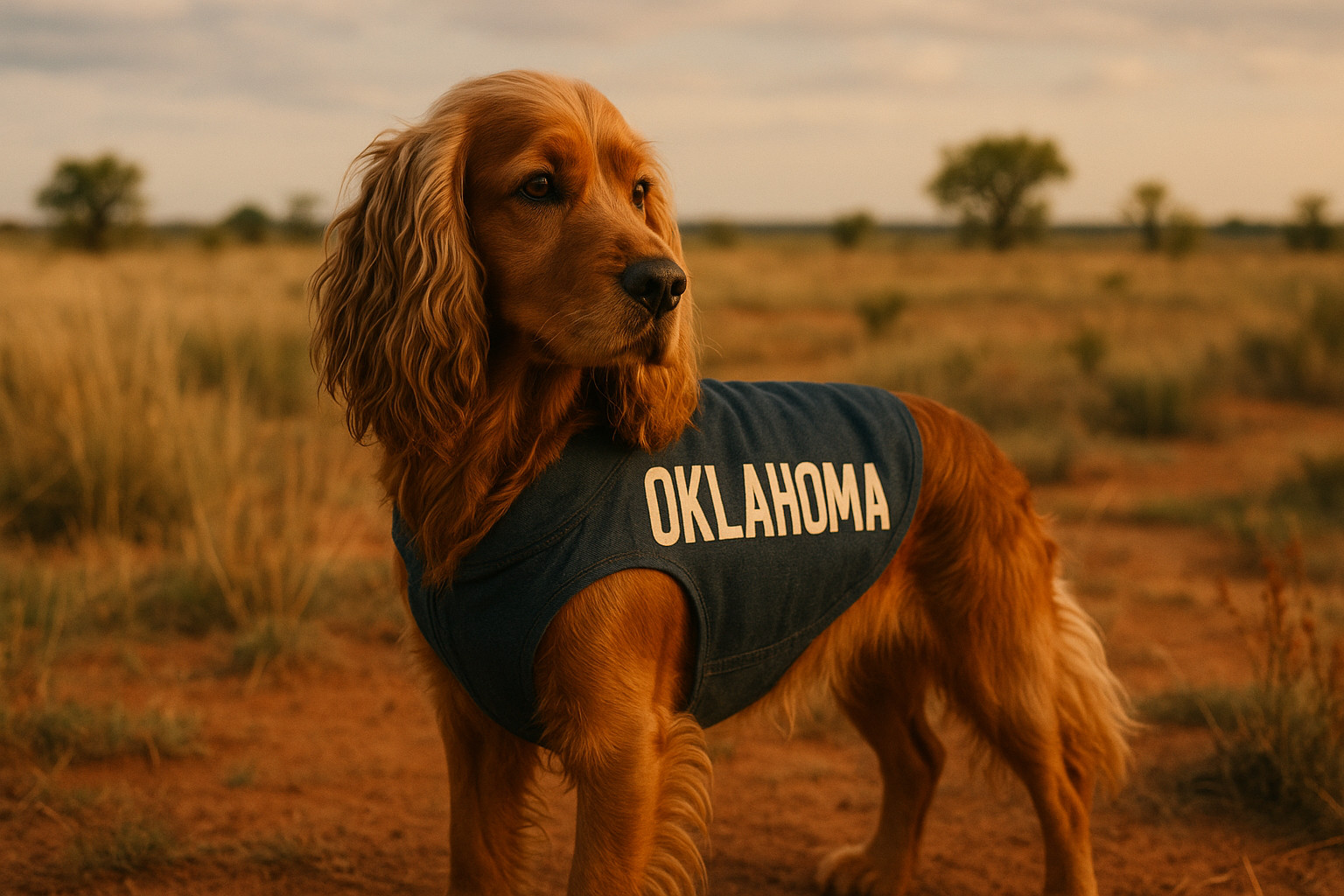
Overview of Service Dog and Legal Definitions in Oklahoma
Understanding service dog laws in Oklahoma begins with recognizing how service dogs are defined under federal and state guidelines. These definitions help differentiate service dogs from other assistance animals and explore the legal implications involved.
What is a Service Dog?
A service dog is specially trained to perform specific tasks for a person with a disability, which may include physical, sensory, psychiatric, intellectual, or other mental disabilities. These tasks are directly related to the handler’s disability and can range from guiding individuals who are blind to alerting individuals who are deaf, pulling a wheelchair, or retrieving items for those with mobility challenges. According to the Americans with Disabilities Act (ADA), dogs are the only species recognized as service animals, with no provisions for any other type of animal to be considered as such.
How Service Dogs Differ from Other Types of Assistance Animals
Assistance animals fall into various categories, each serving different roles. Service dogs are distinguished from emotional support animals (ESAs) and therapy animals by their training and purpose. While ESAs provide companionship and can help alleviate symptoms of mental illness, they do not possess specialized training to perform tasks related to a person’s disability and are therefore not accorded the same legal status as service dogs. Therapy animals, often part of therapeutic treatment plans, offer comfort and emotions of wellness during therapy visits. However, like ESAs, they lack the specialized task training characteristic of service dogs.
Key Federal Laws Affecting Service Dogs (e.g., ADA, FHA, ACAA)
Federal laws provide the foundation for service dog regulations, which affect how state-level laws, such as those in Oklahoma, are applied.
- Americans with Disabilities Act (ADA): Under the ADA, service dogs are allowed to accompany their handlers in most public areas, including businesses, government buildings, and non-profit organizations, without the need for detailed documentation or proof of training. The ADA stipulates that service dogs must be harnessed, leashed, or tethered unless these devices interfere with the dog’s work or the handler’s disability prevents using them.
- Fair Housing Act (FHA): This federal law requires landlords to provide reasonable accommodations to people with disabilities using service dogs, even in housing that otherwise enforces “no pets” policies. Under the FHA, service dog handlers may be exempt from pet fees.
- Air Carrier Access Act (ACAA): As per ACAA guidelines, airlines must allow service dogs to accompany their handlers in the cabin of an aircraft, although they may require submission of forms supporting the accommodation request in advance.
State-Specific Service Dog Laws in Oklahoma
While Oklahoma adheres to federal guidelines for service dogs, state-specific regulations augment these laws to clarify rights and responsibilities for handlers and businesses. Oklahoma law concurs with the ADA’s definition of a service dog but elaborates on specific areas such as public access, housing, and transportation.
Housing Rights and Responsibilities
In Oklahoma, people who use service dogs are entitled to equal housing opportunities. Landlords cannot refuse tenants based solely on the presence of a service dog, nor can they charge additional fees typically associated with pets. Tenants may face challenges involving differentiation between service dogs and other assistance animals, but generally, as long as the dog performs tasks related to a disability, the law supports housing access.
Public Access and Accommodation
Under Oklahoma law, places of public accommodation, such as restaurants, hotels, and theaters, must admit service dogs. The handlers may only be asked whether the animal is a service animal and what tasks it is trained to perform but cannot be required to present proof of disability or additional documentation for the animal. Business operators can exclude a service dog only if it is out of control and the handler does not take effective action, or if it is not housebroken.
Transportation and Travel Rules
In line with the ADA and ACAA, Oklahoma’s transportation providers must permit service dogs. Public transit systems, taxicabs, and ride-share services must accommodate service dogs and cannot impose additional charges or segregate individuals with service dogs. Airlines may require advance notice and documentation for international flights or routes that have special accommodations or documentation protocols.
Employment and Workplace Considerations
Employers in Oklahoma must comply with the ADA in providing reasonable accommodations to employees with service dogs. Employers cannot deny employme
nt opportunities based on the presence of a service dog and must allow service dogs in the workplace as long as they do not pose an undue hardship or fundamentally alter the work environment. Open communication between handlers and employers about the nature and role of the service dog can often mitigate potential misunderstandings.Documentation, Requirements, and Processes in Oklahoma
While federal laws like the ADA do not require certification or documentation for service dogs, knowing the norms around documentation in Oklahoma can smooth interactions in housing, workplaces, and travel.
Service Dog Documentation and Who Can Issue It
In Oklahoma, there are no legal requirements for specific documentation or certification for service dogs. However, trainers or training programs can provide evidence of completion or proof of training that may be beneficial during disputes or as reassurance for uninformed landlords or employers.
Landlord, Business, and Provider Verification Rules
Under Oklahoma law, verification practices are limited. Employers, landlords, and businesses may only inquire about two points: whether the dog is required because of a disability and what tasks the animal is trained to perform. They cannot demand certification or registration documents as proof.
Rights, Limitations, and Legal Risks
Awareness of rights and limitations is essential for handlers, ensuring compliance with state and federal laws while avoiding common pitfalls.
Rights Service Dog Handlers Have in Oklahoma
Service dog handlers in Oklahoma have broad rights:
- Right to equal access to public spaces
- Freedom from additional fees in housing
- Ability to travel with their service dogs on public transport and airlines
- Protection from employment discrimination
Limits on Service Dog Protections and Common Restrictions
Service dogs are permitted in most areas, but exceptions include:
- Private clubs and religious institutions may have different regulations
- Dogs that are not under control can be legally excluded
- Areas where the animal’s presence compromises safety, such as operating rooms
Penalties for Fraud or Misrepresentation
Misrepresenting a pet as a service animal can lead to fines and legal penalties in Oklahoma. Individuals caught misrepresenting a non-qualified animal may face fines up to several hundred dollars, part of state efforts to maintain the integrity of service animal designations.
Practical Guidance for Service Dog Handlers in Oklahoma
Practical application of service dog laws can ease living and working in Oklahoma with a service dog.
How to Qualify for a Service Dog Legitimately
To qualify for a service dog in Oklahoma, one must:
- Have a documented disability
- Require a service dog to perform tasks related to that disability
- Work with a reputable training program that aligns the dog’s tasks with specific needs
How to Talk to Landlords, Airlines, and Employers
Effective communication is key. Handlers should:
- Clearly explain the necessity and role of the service dog
- Present any voluntary documentation or training certificates to prevent disputes
- Educate about legal entitlements under state and federal laws where necessary
Summary of Service Dog Laws in Oklahoma
In summary, Oklahoma service dog laws protect the rights of individuals with disabilities, aligning closely with federal laws. Handlers must be informed of their rights and the limits of those rights to navigate interactions with landlords, employers, and the public efficiently. Misrepresentation of any kind undermines legitimate claims and is subject to penalties.
Key Points for Service Dog Handlers in Oklahoma:
- Rights:
- Equal access to public spaces
- Exemption from pet fees in housing
- Protection against employment discrimination
- Limitations:
- Excluded from specific spaces for safety or as per club/religious rules
- Limited verification inquiries allowed
- Dogs must be under handler control
- Practical Tips:
- Engage with reputable service dog trainers
- Communicate clearly with landlords and employers
- Understand the penalties for fraud to prevent misuse
This comprehensive understanding of Oklahoma’s service dog laws ensures handlers can effectively advocate for their rights while maintaining compliance with regulations.



